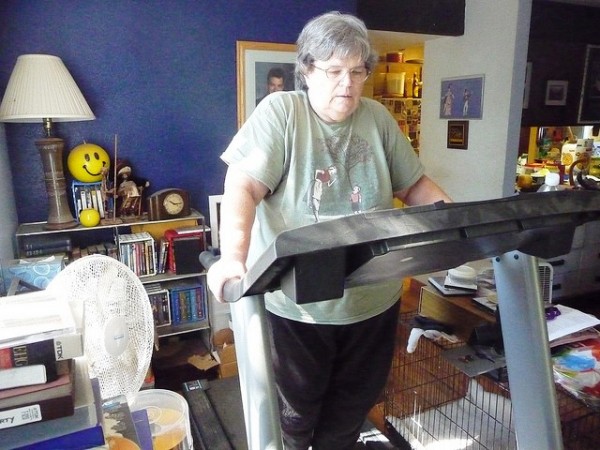Low Walking Speed Indicates Risk of Memory Loss in Seniors: Study

Walking speed helps predict the risk of dementia in older adults, finds a study.
Researchers at the Albert Einstein College of Medicine of Yeshiva University and Montefiore Medical Center developed a new test that measures the probability of motoric cognitive risk syndrome (MCR). The test observes the walking speed and mental skills of patients to assess their likelihood of suffering cognitive impairment and memory loss. Almost 26,802 adults without history of memory loss or mental illnesses who were aged about 60 took part in the test.
Around 9.7 percent of the participants, both men and women, were identified with symptoms of MCR - very slow walking speed and cognitive decline.
The study noted abnormal gait or walking for less than a meter within a second along was mostly common among subjects who were less educated. The experts again reviewed data from four previous trials with 4,812 individuals with MCR and followed them for nearly 12 years. Their findings revealed people who were diagnosed with MCR were twice likely to get dementia.
The authors believe this method is beneficial in early diagnosis of underlying conditions that translate in to diseases like dementia and Alzheimer's in old age. However, they add walking speed of seniors alone cannot gauge their risk rate of developing dementia and slow gait can be due to musculoskeletal issues and ear problems that are not related to memory decline.
"Our assessment method could enable many more people to learn if they're at risk for dementia, since it avoids the need for complex testing and doesn't require that the test be administered by a neurologist. The potential payoff could be tremendous not only for individuals and their families, but also in terms of healthcare savings for society. All that's needed to assess MCR is a stopwatch and a few questions, so primary care physicians could easily incorporate it into examinations of their older patients," said Joe Verghese, study author and professor in the Saul R. Korey Department of Neurology and of medicine at Albert Einstein College, in a press release.
Health ailments like hypertension, diabetes, cholesterol and obesity affect the heart thereby restricting blood flow to the brain and leading to memory disorders like dementia. These conditions are oten a result of unhealthy lifestyle like drinking, smoking, sedentary habits and poor food choices. Health experts encourage seniors to ensure they incorporate healthy living habits and remain actively involved in mentally stimulating tasks like reading, writing, playing card games and dancing to prevent dementia.
More information is available online in the journal of the American Academy of Neurology.
Jul 26, 2014 05:46 AM EDT




